Best Liver Doctor in Ghaziabad
The liver, a vital organ, performs numerous functions that keep the body healthy. From filtering toxins to aiding digestion, liver health is central to overall well-being. Liver disorders, including fatty liver disease, hepatitis, and liver cirrhosis, impact many people and can vary from mild to severe, affecting daily life.
Liver disorders are treatable, but early detection and a personalized treatment approach are crucial,” says Dr. Ayush Chandra, a prominent liver specialist and diabetologist in Ghaziabad, highlighting the necessity of timely care.
With over 16 years of experience treating liver and related health issues, Dr. Ayush Chandra is regarded as one of the best liver doctor in Ghaziabad. His extensive knowledge and skills in diagnosing liver conditions allow him to provide targeted treatments that address patients’ unique needs and concerns.
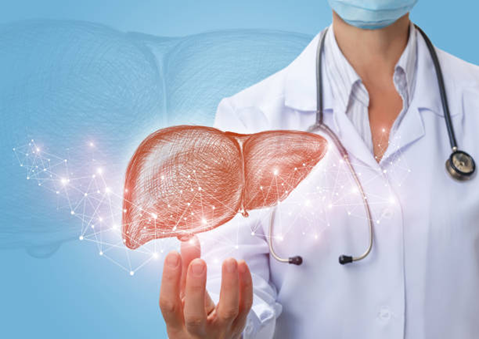
Curious about liver disorders? Let’s dive into the details!
What is Liver Disorder?
Liver disorders encompass a wide range of conditions, from minor issues to life-threatening diseases. These conditions affect liver functionality, impairing its ability to detoxify the body, regulate metabolism, and produce vital proteins. Some common liver disorders include fatty liver disease, hepatitis, cirrhosis, and liver cancer.
Fatty liver disease, often due to excess fat build-up, can be alcohol-related or non-alcoholic, while hepatitis involves inflammation from viral infections or autoimmune responses.
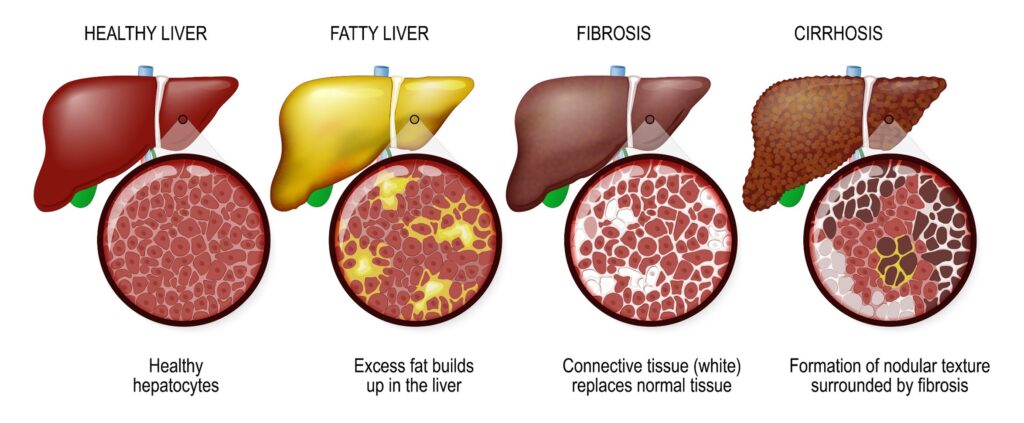
Cirrhosis, a more advanced condition, results from long-term liver damage and can lead to liver failure.
In the early stages, liver disorders may be asymptomatic. However, as they progress, symptoms like jaundice, fatigue, and swelling in the abdomen and legs can appear. Knowing these early signs and seeking expert care is crucial for managing liver health effectively.
Are you concerned about liver health? Discover why it matters.
Why is Liver Health Important?
The liver plays an essential role in filtering toxins, metabolizing nutrients, and supporting immunity. It aids digestion by producing bile, a fluid necessary for breaking down fats, and helps store vitamins and minerals. A healthy liver supports metabolic functions, ensuring the body receives and utilizes nutrients efficiently.
When liver health is compromised, these functions become disrupted, affecting not only the digestive system but also cardiovascular and immune health. A liver specialist helps patients understand these vital functions and provides insights on maintaining liver health through individualized care and preventive measures.
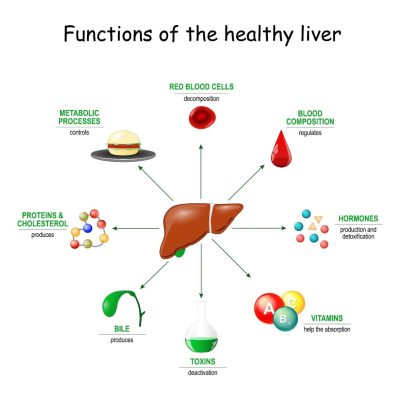
Do you know the primary triggers and signs of liver issues? Let’s find out.
Causes & Symptoms of Liver Disorders
Common Causes:
- Viral infections like hepatitis B and C
- Excessive alcohol consumption
- Poor diet, leading to fatty liver
- Genetic predisposition
- Exposure to toxins and certain medications

Symptoms:
- Fatigue and weakness
- Loss of appetite
- Persistent nausea
- Jaundice (yellowing of skin and eyes)
- Swelling in legs and abdomen
“Timely recognition of these symptoms and consultation with an expert can lead to early diagnosis and effective treatment,” notes Dr. Ayush Chandra, one of the best liver specialist in Ghaziabad.
How are liver disorders diagnosed? Let’s break it down.
Diagnosis of Liver Disorder
Medical History: Review of symptoms and medical history to assess risk factors, such as alcohol use, medications, and family history of liver disease.
Physical Examination: A healthcare provider may check for signs of liver disease, including jaundice, abdominal swelling, and tenderness in the liver area.
Blood Tests:
Liver Function Tests (LFTs): Measures levels of liver enzymes (ALT, AST, ALP), bilirubin, and proteins to assess liver health.
Viral Hepatitis Tests: Checks for hepatitis A, B, and C infections through specific serological tests.
Complete Blood Count (CBC): Assesses overall health and detects conditions like anemia or infection.
Imaging Studies:
Ultrasound: Uses sound waves to create images of the liver, helping to identify abnormalities, tumors, or fatty liver.
CT Scan: Provides detailed cross-sectional images of the liver to assess its structure and any lesions.
MRI: Offers detailed images of the liver and surrounding organs, often used for detecting tumors or vascular issues.
Liver Biopsy: A small sample of liver tissue is taken using a needle to evaluate for inflammation, fibrosis, or cirrhosis.
Endoscopy: In some instances, an endoscopy may be performed to check for oesophagal varices, which can occur in advanced liver disease.
Stool Tests: Analysis of stool samples may be conducted to check for infections or malabsorption issues related to liver function.
Urinalysis: A urine test may help identify the presence of bilirubin or other substances indicative of liver dysfunction.
What are the treatment options for liver disorders? Let’s explore them!
Treatment for Liver Disorder
Lifestyle Modifications: Adopting a healthy lifestyle with balanced nutrition, regular exercise, and limited alcohol intake can help manage and sometimes reverse liver disorders.
Medications: Prescription medications may be necessary to control symptoms, reduce inflammation, and address infections. Medications vary based on the specific liver condition.
Liver Detoxification: Some cases benefit from medically supervised detoxification to remove toxins from the liver and support natural healing processes.
Antiviral Therapy: For viral infections like Hepatitis B or C, antiviral treatments can help prevent liver damage and manage symptoms.
Regular Monitoring: Continuous monitoring through liver function tests and imaging helps track treatment progress and make necessary adjustments.

Prevention of Liver Disorder
Maintain a Balanced Diet: Include fibre-rich fruits, vegetables, and whole grains in your diet to support liver function.
Limit Alcohol Consumption: Excessive alcohol intake can damage liver cells. Moderation is essential for liver health.
Exercise Regularly: Regular physical activity helps maintain a healthy weight, reducing the risk of fatty liver disease.
Avoid Unnecessary Medications: Only take medications as prescribed by a healthcare professional to reduce liver strain.
Practice Safe Hygiene: Wash hands regularly, avoid sharing needles, and ensure vaccinations (like Hepatitis A and B) to prevent infections.
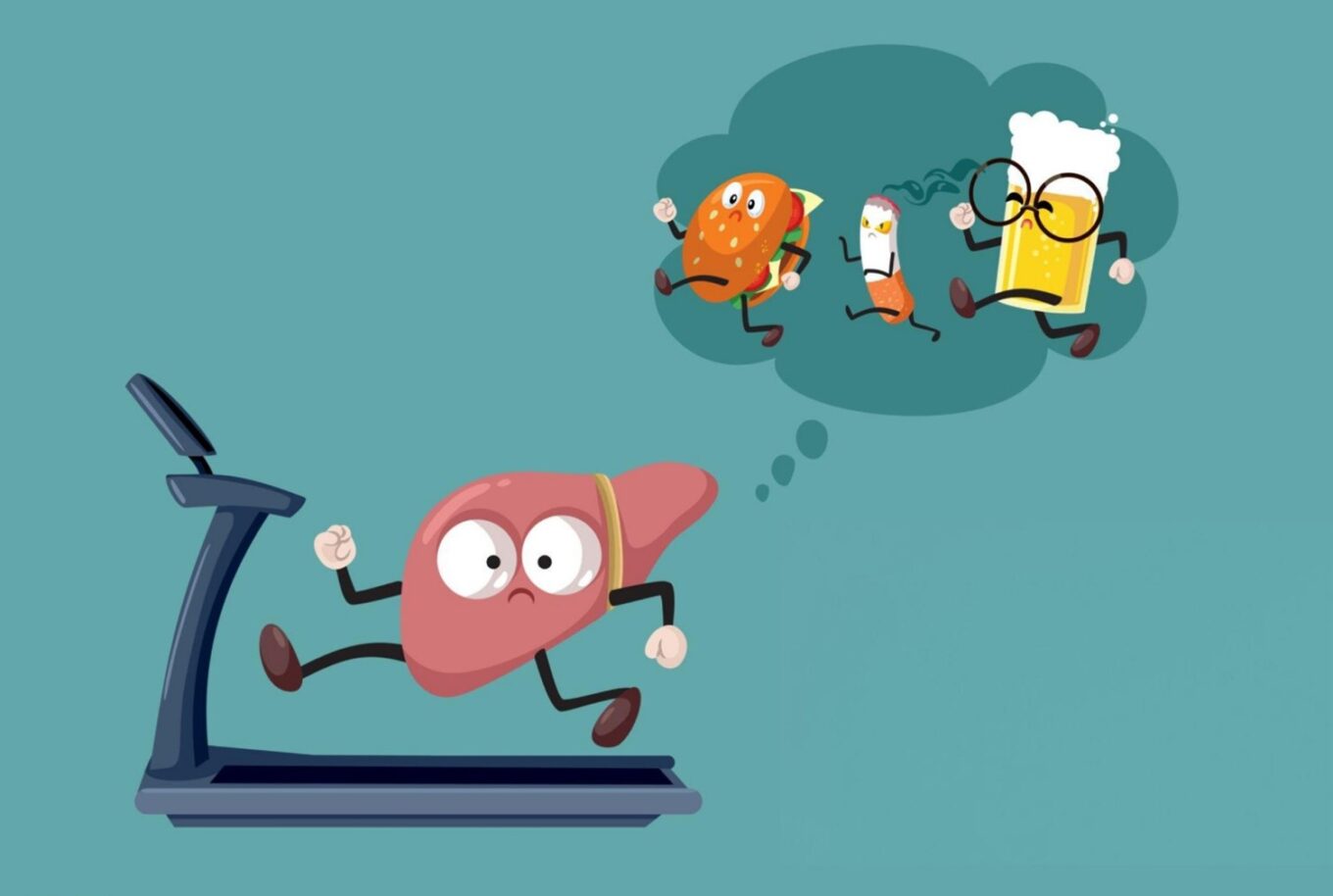
Stay Hydrated: Drinking enough water aids the liver in flushing out toxins from the body.
Avoid Exposure to Toxins: Minimize contact with harmful chemicals, including pesticides and cleaning agents.
Monitor Weight: Maintain a healthy weight to lower the risk of liver disorders like non-alcoholic fatty liver disease.
Why Choose Dr. Ayush Chandra as Your Liver Doctor in Ghaziabad?
Extensive Experience: With over 16 years of experience in liver care, Dr. Ayush Chandra brings strong expertise in managing complex liver disorders, making him well-equipped for challenging cases.
Comprehensive Care: Dr. Chandra's holistic approach ensures patients receive complete care, addressing lifestyle changes and prevention alongside treatment.
Patient-Centric Approach: He values patient comfort by explaining diagnoses and treatments and helping patients feel informed and reassured.
Positive Patient Outcomes: Dr. Ayush Chandra has a strong record of successful treatments, with patients frequently experiencing significant health improvements and satisfaction.
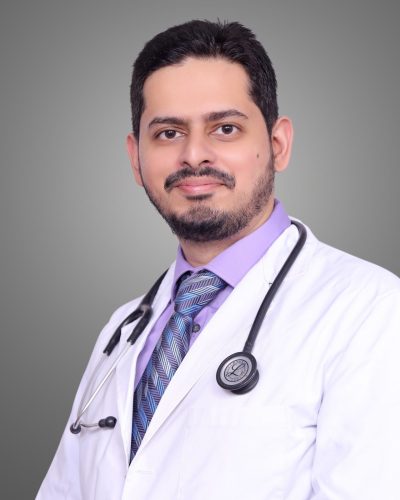
For expert liver care and tailored treatments, consult a seasoned specialist today. Book an appointment now!
Frequently Asked Questions :
The most common liver disease is fatty liver disease, which can be classified as alcoholic or non-alcoholic. It involves fat accumulation in liver cells, potentially leading to inflammation and damage.
A healthy liver usually does not show symptoms, but regular blood tests, such as liver function tests, can indicate liver health. Additionally, maintaining a healthy lifestyle can support liver function.
Stage 1 liver disease, often referred to as mild liver disease, indicates early damage to the liver without significant scarring or fibrosis. At this stage, patients may not experience noticeable symptoms.
While a definitive assessment requires medical testing, you can monitor liver health at home by maintaining a healthy diet, staying hydrated, avoiding excessive alcohol, and being aware of any unusual symptoms like fatigue or jaundice.
In some cases, early-stage liver damage can be reversed with lifestyle changes and medical treatment. However, advanced liver damage may not be fully reversible.

